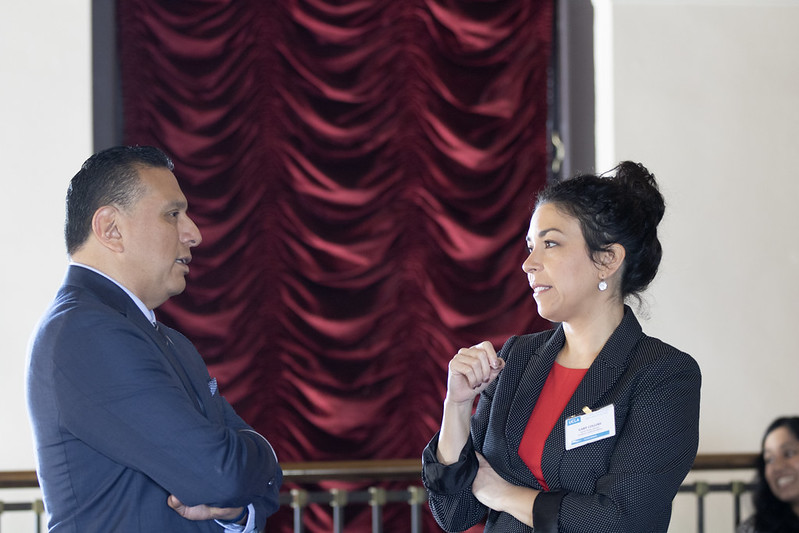Climate change — and what Los Angeles leaders and planners can do about it — was the topic of this year’s UCLA Luskin Day at City Hall held Feb. 15, 2019. Now in its 15th year, the event sees UCLA Luskin Urban Planning, Social Welfare and Public Policy students traveling to the iconic City Hall to discuss and debate a current policy issue with policymakers, officials from government agencies and community leaders. This year’s topic, “How Can Planning Combat Climate Change?” came from Councilmember Paul Koretz of District 5. Colleen Callahan MA UP ’10, deputy director of the UCLA Luskin Center for Innovation (LCI), served as program adviser for group of 18 students. Koretz wanted “outside-the-box ideas for addressing climate change through planning and policy solutions,” Callahan said, “and how to leverage what the city is already doing and build on new opportunities.” First-year MPP student Noreen Ahmed said, “I thought it was really valuable because the people we interviewed went straight into talking about what the issues were, what they cared about, how climate change is involved in what they are doing.” Ahmed also had the opportunity to interview Los Angeles city planners. Koretz will receive a written memorandum of findings and policy recommendations from the students, according to organizer VC Powe, executive director of external programs and career services. “What happens here in Los Angeles doesn’t stay in Los Angeles,” Koretz told the visiting group. “We are one of the most watched cities in the world. We take action and it spreads statewide — sometimes nationally, sometimes globally. We hope that what we do here in Los Angeles can literally help save the world in terms of dealing with climate change.” The annual trip is co-sponsored by UCLA’s Office of Government and Community Relations. —Stan Paul
View photos from the day on Flickr.


